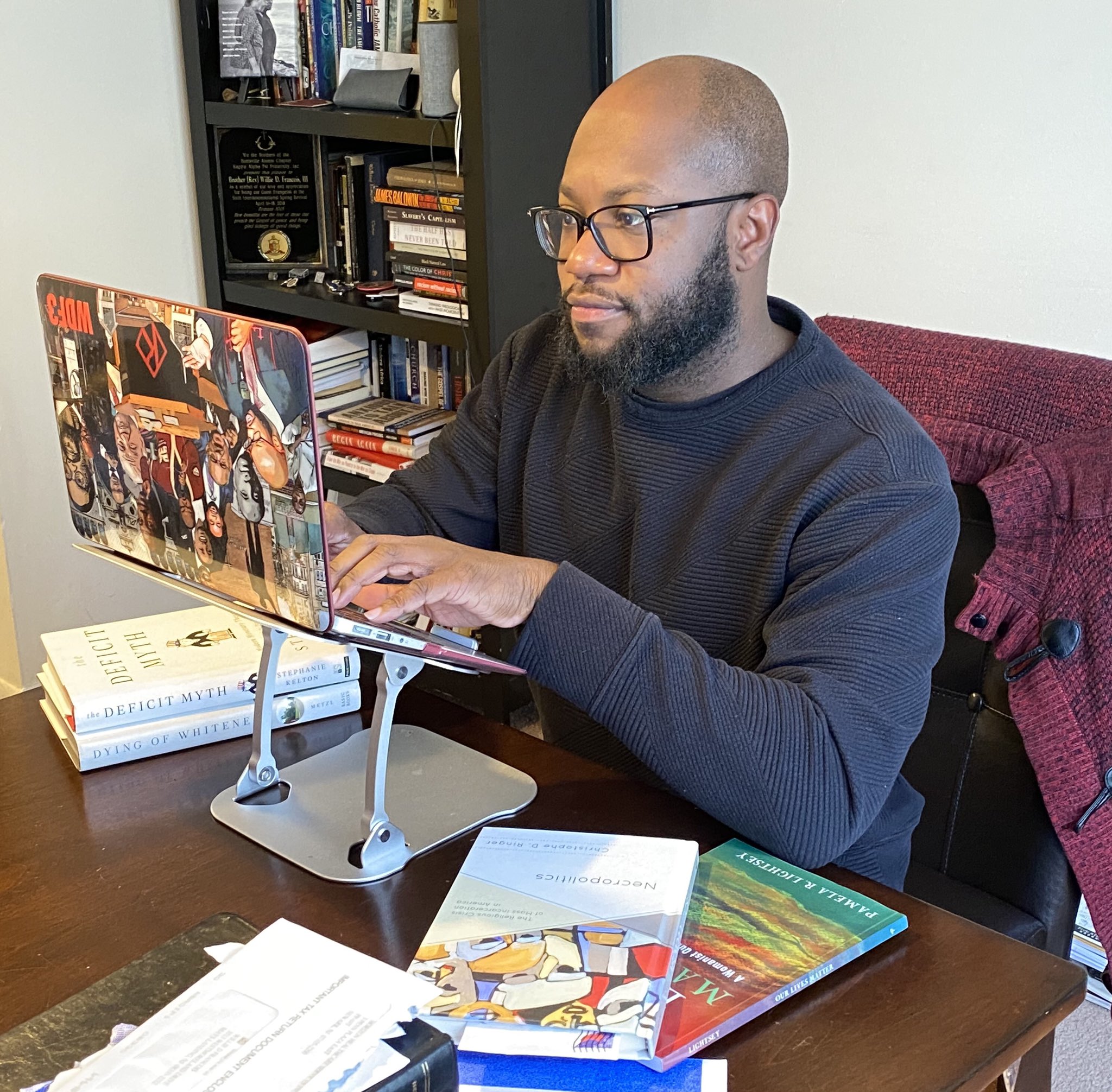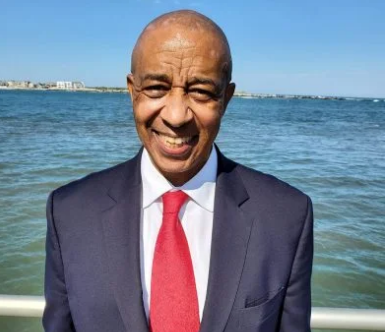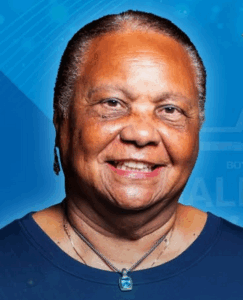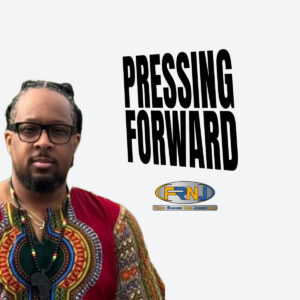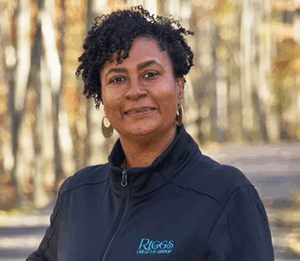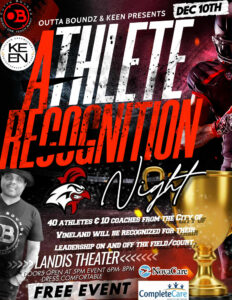Rev. Willie Francois Commits to Community at Mount Zion Baptist
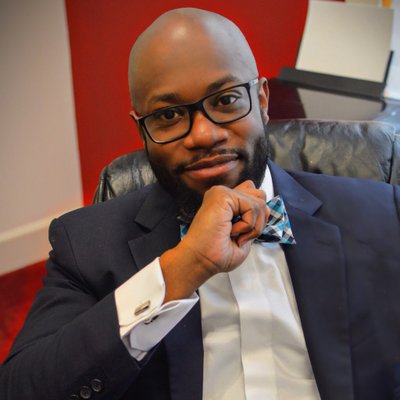
Pastor Willie Francois at Mount Zion Baptist Church in Pleasantville. Photo courtesy Rev. Willie Francois Twitter.
BY CLYDE HUHGES | AC JosepH Media
PLEASANTVILLE — As one of the most influential pastors in South Jersey, Rev. Willie Dwayne Francois III says he believes in not just the role the Black church plays in the lives of its congregation, but its historical role of uplifting entire communities and beyond.
From Dr. Martin Luther King Jr. and Rev. Jesse Jackson, to the United States’ newest Congressman Rev. Raphael Warnock in Georgia, African American men of the cloth have long taken their faith to the congregation and the masses.
As pastor of Mount Zion Baptist Church in Pleasantville, Francois has not shied away from engaging people well beyond the four walls of his church.
In the DNA
“I believe it is in our DNA of what it means to be a faith community and invested in the community,” said Francois, a Galveston, Texas native and preached in Harlem before coming to Pleasantville. “We are used to mobilizing all of our resources to impact all of our people where we sit and the places where we live. It’s the meaning of transforming our very city.
“The Jesus movement was never stationary. It was always mobile. The Black church has always impacted the external community. It means we are honoring the legacy of Jesus Christ and the love revolution he started. It is very intentional for us to invest in our communities,” Francois told Front Runner New Jersey in an earlier interview.
Just last month, Francois helped lead about a dozen Pleasantville community members to Trenton to hand-deliver a letter the New Jersey commissioner of education opposing Absecon’s efforts to sever its longstanding relationship with the Pleasantville school district.
Last summer he joined a handful of pastors in endorsing Democrat Amy Kennedy in her primary for the U.S. House District 2 seat against the endorsed candidate Brigid Callahan Harrison.
In the past month, he participated in an Atlantic City NAACP press conference denouncing hate crimes against Asian Americans and another against racial discrimination. In February, Francois was recognized with a Black History Month citation by the New Jersey State Assembly for “speaking to the morals of our community while fostering a deeper understanding of faith through worship and we recognize your commitment to enhance the quality of life of all of its citizens.”
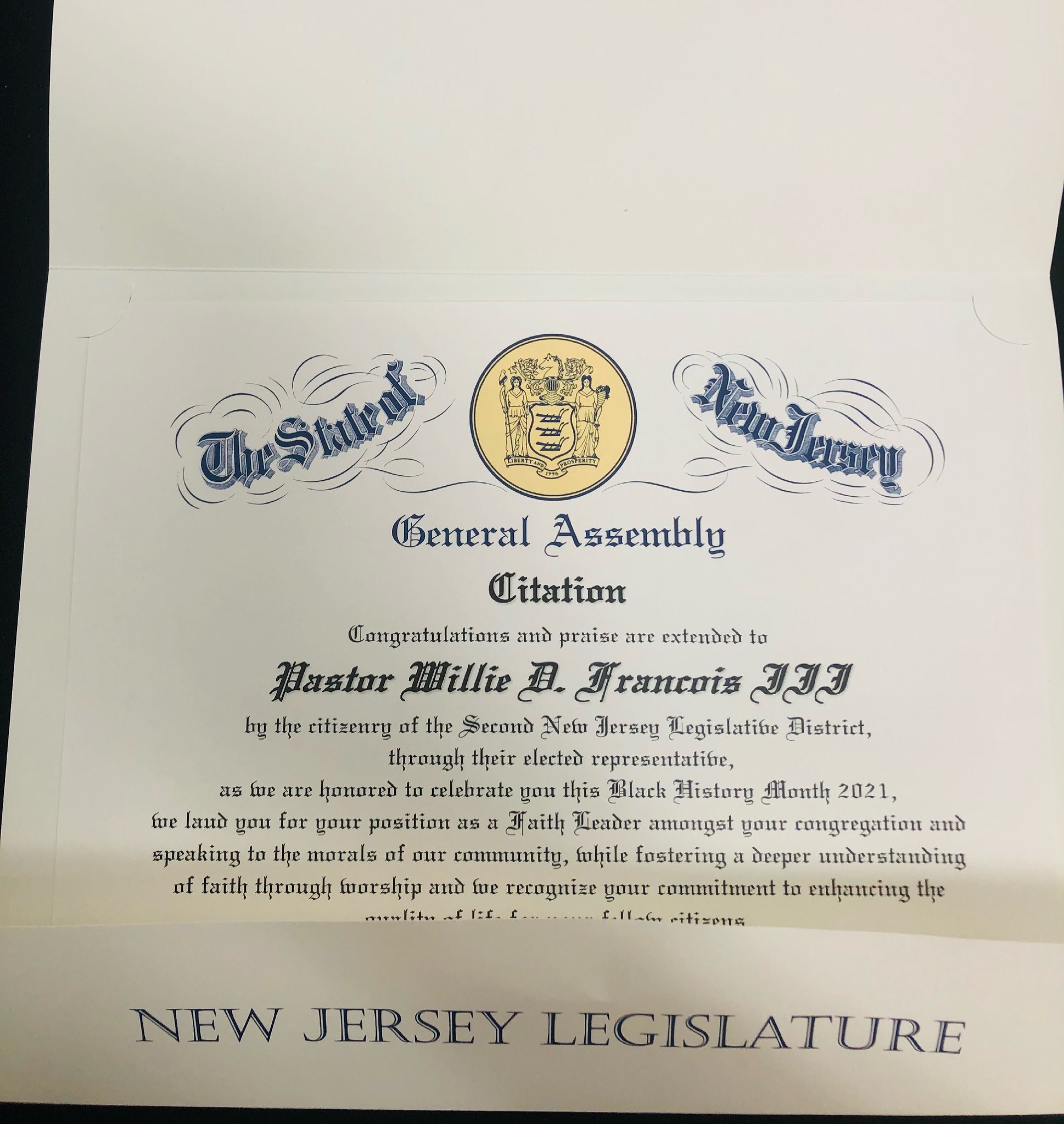
The Black Church
“This is the version of black churches that has nurtured our communities and nurtured me over the years and really formed my understanding of what it means to be a pastor and what it means to build a revolutionary community,” Francois said. “I often say that black churches have to be incubators of social transformation.
“They have to be incubators of revolution because every gain for justice in this country has been connected to people of faith. Whether it was the Civil Rights Act, the Voting Rights Act, we should also never forget the first black hospitals, first black schools, the first black businesses, the first black banks grew out of black churches,” he said.
Francois’ view of the Black church and the community was solidified during his collegiate studies at the historic Morehouse College in Atlanta, where King also attended school.
The Morehouse Experience
While at Morehouse, Francois was elected president of the Martin Luther King Jr. International Chapel Assistants Program and was named the 2009 Martin Luther King Jr. Scholar. Francois received a master of divinity from Harvard University’s Divinity School, where he received the Hopkins Shareholders Award — the school’s highest academic recognition — and served as the class of 2012 commencement speaker.
Francois is currently pursuing a Doctor of Ministry degree at Emory University’s Candler School of Theology.
“Morehouse exposed me to the liberation traditions of the black church,” Francois said. “Morehouse has a strong legacy of cultivating socially-conscious preachers and it did just that for me. In Texas, I grew up not so much with a conservatism, but a kind of political avoidance. Morehouse exposed me to the thinking of people like Howard Thurman and Benjamin Elijah, the people who shaped Martin Luther King, Jr.”
Before arriving at Mount Zion, Francois served as associate pastor of First Corinthian Baptist Church in Harlem from 2013 to 2015. He also served as the minister of Christian education and discipleship at Wheeler Avenue Baptist Church in Houston under his pastor, Rev. Dr. Marcus D. Cosby.
Francois said Cosby is one of the people he continues to look up to, even as struggles at times to see himself in the same light as young people who are now looking up to him.
“I remember a time when I was the one looking up to the leaders, and now I’m finding younger people looking up to me, and I’m still always taken aback,” Francois said. “By that, I mean I’ve lived long enough to have a generation behind us looking at me, and I think that’s important. I want to be known as somebody who’s deeply imperfect but somebody who’s deeply just trying to have a significant impact for people who don’t have the space to speak for themselves, for people who need someone to journey with them in high moments, and in low moments.
“My commitment as a role model is to be clear about my growth areas, to be clear about my conviction that it’s ordinary people who do extraordinary things, that ordinary people make sacrifices on behalf of others. So if I want to be known for anything, I want to be known for a person who uses just privilege and his power on behalf of other people,” he stated.
A member of Kappa Alpha Psi fraternity, Francois was a safety net communications fellow at the Center for Community Change in 2018 and is a charter core team member of Black Lives Matter Atlantic City. He has written for the Huffington Post, Religion Dispatches, Civil Eats, The Hill and The Christian Century concerning a range of matters pivoting around race, class, and religion in America.
In February, Francois signed a contract for his second book. He continued to lift his Pleasantville congregation up and connect to the community in the best traditions of the African American church.
Follow Us Today On:
Note from AC JosepH Media: If you like this story and others posted on Front Runner New Jersey.com, lend us a hand so we can keep producing articles like these for New Jersey and the world to see. Click on SUPPORT FRNJ and make a contribution that will do directly in making more stories like this available. Thank you for reading!
